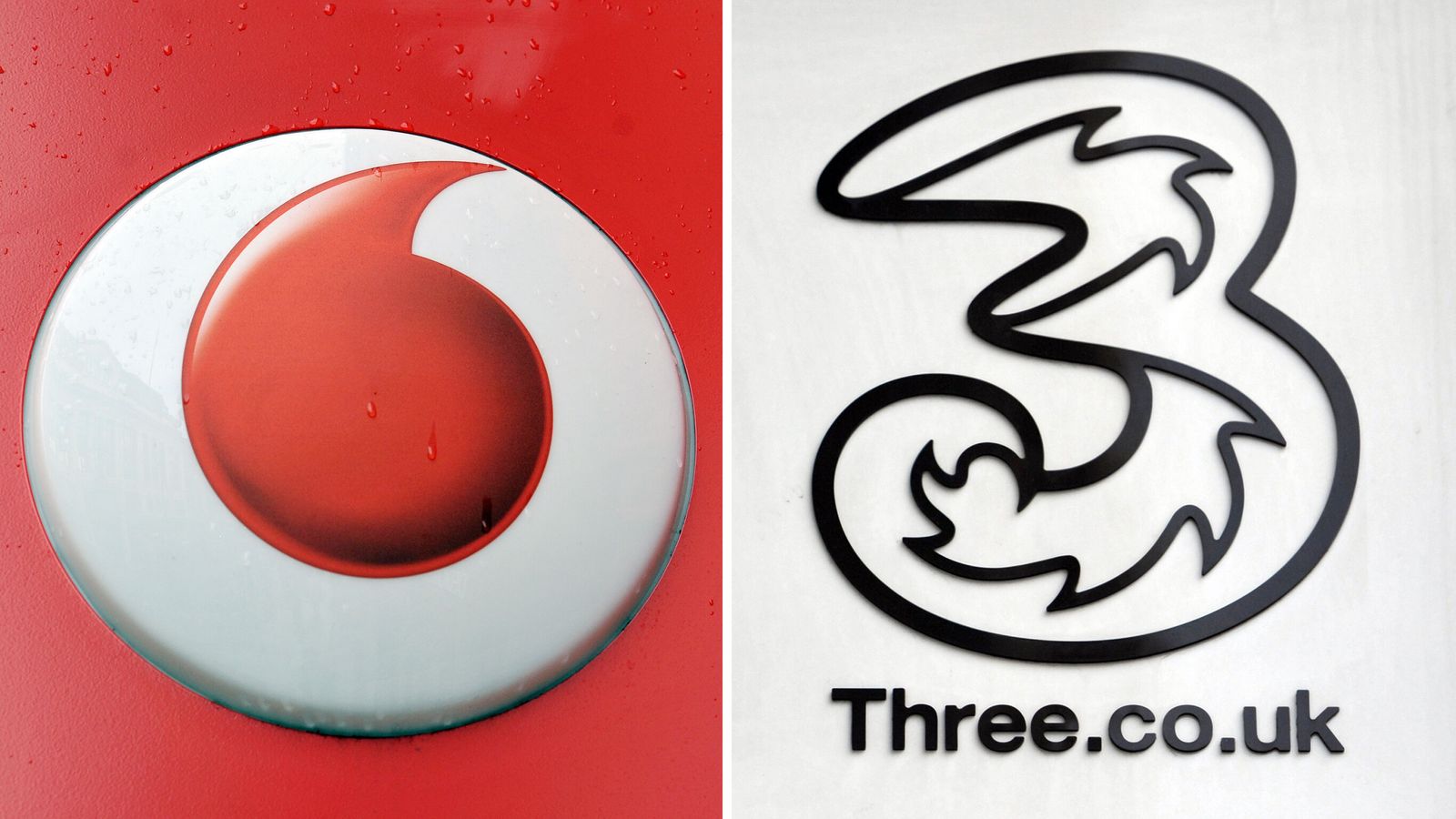Vodafone and Three merger could get green light, says UK’s competition watchdog


A £15bn merger between two of the UK’s biggest mobile networks could get the green light – if they stick to their commitments to invest in the country’s infrastructure, the competition watchdog has said.
The Competition and Markets Authority (CMA) said the merger of Vodafone and Three had “the potential to be pro-competitive for the UK mobile sector”.
Announced last year, the proposed £15bn merger would bring 27 million customers together under a single provider.
The watchdog previously warned that tens of millions of mobile phone users could end up paying more if the merger went ahead.
However, the two groups recently set out plans to protect consumer pricing and boost network investment.
The CMA has now laid out a list of “remedies” required for the deal to go-ahead.
They include the networks committing to freezing certain tariffs and data plans for at least three years to protect customers from short-term price rises in the early years of the network plan.
Please use Chrome browser for a more accessible video player
8:17
From September: ‘A transformation for the UK’
Stuart McIntosh, chair of the inquiry group leading the investigation, said on Tuesday: “We believe this deal has the potential to be pro-competitive for the UK mobile sector if our concerns are addressed.
“Our provisional view is that binding commitments combined with short-term protections for consumers and wholesale providers would address our concerns while preserving the benefits of this merger.
Advertisement
“A legally binding network commitment would boost competition in the longer term and the additional measures would protect consumers and wholesale customers while the network upgrades are being rolled out.”
Today’s announcement is provisional, with a final decision due before 7 December. The inquiry group is inviting feedback on today’s announcement by 5pm on 12 November.
Read more:
The lesser-known tricks estate agents use to secure sales
Bosses rail at business secretary over ‘avalanche of costs’
The CMA also published a list of potential solutions – which it called remedies – to issues it identified with the merger.
If the networks want the merger to go ahead, the watchdog requires Vodafone and Three to:
• Deliver a joint network plan to set out network upgrades and improvements over eight years;
• Commit to keeping certain existing tariff costs and data plans for at least three years to protect customers from price hikes;
• Commit to pre-agreed prices and contract terms so Mobile Virtual Network Operators (MVNOs) – mobile providers that do not own the networks they operate on – can obtain competitive wholesale deals.
Vodafone and Three are two of the biggest mobile firms in the UK, and their networks support a number of MVNOs including Asda Mobile, Lebara, Voxi, and Smarty.
In a joint statement responding to the CMA’s comments, Vodafone and Three said: “The merger will be a catalyst for positive change.
“It will bring significant benefits to businesses and consumers throughout the UK, and it will bring advanced 5G to every school and hospital across the country.
“The merger is also closely aligned with the government’s mission to drive growth and to encourage more private investment in the UK.”

Keep up with all the latest news from the UK and around the world by following Sky News
Earlier this year, Three’s chief executive hit out at the UK’s “abysmal” 5G speeds and availability as he urged regulators to approve the company’s merger with Vodafone.
Robert Finnegan noted his firm’s “cash flows have been negative since 2020 and our costs have almost doubled in five years, meaning investment in [the] network is unsustainable”.
“UK mobile networks rank an abysmal 22nd out of 25 in Europe on 5G speeds and availability, with the dysfunctional structure of the market denying us the ability to invest sustainably to fix this situation,” he added.